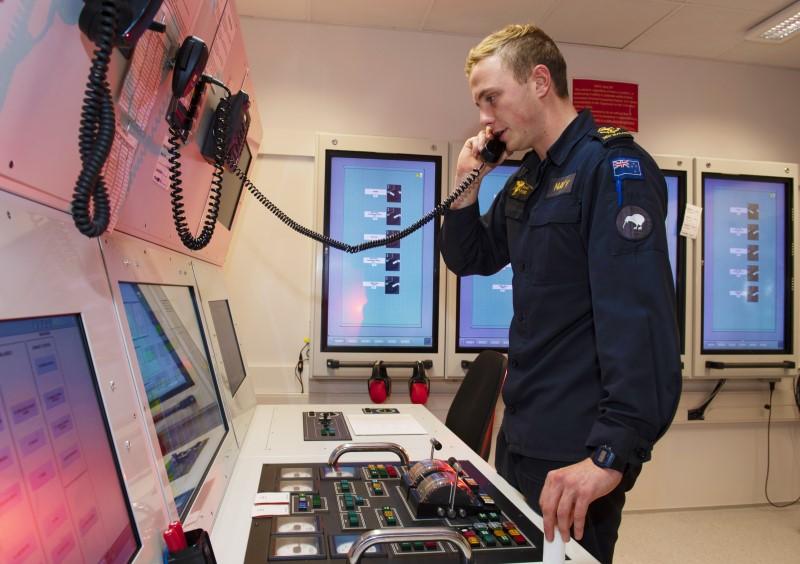How did a 16th century Italian philosopher influence the Navy’s training simulator?
The Royal New Zealand Navy (RNZN) is a traditional organisation that has trained its operations/maintenance engineers in a traditional way. However, new technologies have gradually and dramatically altered Navy operations and maintenance activities.
The combination of technology, lateral thinking and Italian philosophy has become the catalyst for thinking about new ways of training.
At the heart of this story is the MESTE – the Navy’s Marine Engineering Synthetic Training Environment or in layman’s terms – a virtual ship, engineering plant and equipment.
“Simulation in its many forms has been introduced throughout the Navy and the wider NZ Defence Force as a cost effective, safe, repeatable and appropriate way to train our engineering people,” said Kevin Heveldt, recently appointed as the Navy’s Simulation Manager.
“Over the last eight years simulation technologies have improved and been embraced organisationally, however, change can be difficult in traditional organisations and even more so in traditional disciplines such as engineering,”
said Heveldt.
The RNZN uses virtual reality simulators to train a wide range of personnel in activities such as ship handling, firefighting and damage control and is now exploiting the technology for certifying engineers in control room operation. The range of technologies is increasing as more and more ways of exploiting the technology are found. Uses of simulation range from live training facilities through to virtual reality and even a proposal to use Augmented Reality to support maintenance taskings.
Before simulators were introduced personnel were trained on-board ships, which reduced their availability for operational taskings and increased maintenance loads. Using simulators, the Navy can train personnel, both individually and in teams; across a wide range of situations from normal procedures to realistic emergencies, without risk to people or ships.
“Challenging scenario, are replicated, a wide range of experiences are facilitated, and ship’s teams can be assessed on their training performance individually or as an integrated team,” said Heveldt.
As the senior manager of the Navy’s synthetic training environments, Heveldt will present a keynote address at NMEC 2019, ‘Technology in Naval Engineering Training: How Machiavelli and Vygotsky are helping us grow great engineers’.
So, what do a 16th Century Italian Philosopher and a Russian Psychologist have to do with naval simulators?
Well, you will have to turn up to NMEC 2019 to hear this fascinating analysis of the Navy’s simulation progress and look back on how innovative strategies and solutions based on the work of Niccolò Machiavelli and Lev Vygotsky were used to integrate the new technological tools.
This presentation will also discuss how, with uptake of simulator technology, the Navy has needed to develop new training methodologies and move to a 21st century version of the master apprentice relationship.
Heveldt is the Navy’s senior simulation expert. He is responsible for the operation, management and development of opportunities for synthetic training within the RNZN, across the wider pan-NZDF and internationally.
To hear why this new thinking might change how you train your engineers, join us at NMEC 2019 in Rotorua, 12 – 14 November 2019. Registrations are now open www.nmec.co.nz.
We welcome all engineers, asset managers, and project and operational teams.
NMEC is the best forum for continuous learning for today’s engineers. The annual NMEC event is staged to bring together as many engineers as we possibly can to learn:
• From each other through well-thought-out networking opportunities.
• From the exhibitors as solution providers.
• From the expertise and inspiration of our invited speakers.
Details, Chris Thomas, Ph: 027 297 9643
Email: chris@specialevents.co.nz; Craig Carlyle, Ph: 027 41 44 260, Email: craig@transform.net.nz



